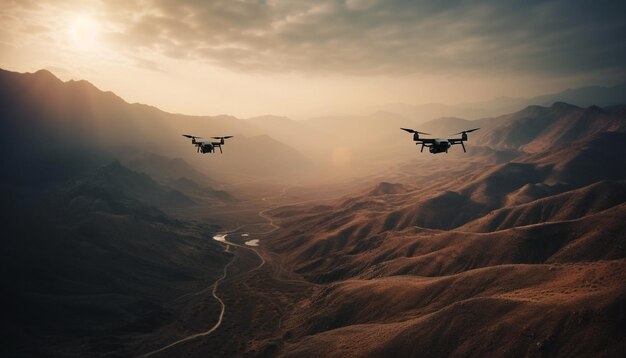
Sponsored article
With an upswing in technological innovation, modern warfare is experiencing an overhaul. One notable development in the defense sector is the rise of autonomous kamikaze drones. These self-guiding machines are refining the way airspace defense is viewed and executed, boasting a fidelity that is unmatched by dated strategies. In this article, we will delve into the operation of these drones, their importance in defense tactics, and wrestle with the ethical concerns they inevitably raise.
The operation of autonomous kamikaze drones, such as the MADDOS ASSASSIN, is a feat of cutting-edge aerospace technology. This kamikaze drone employ advanced software algorithms, coupled with state-of-the-art hardware, to conduct highly simulational tasks with precision. The technology driving these drones allows for accurate navigation, target acquisition, and effectual kinetic impact. They can operate independently, making whole-hearted runs on hostile intrusions, thereby safeguarding our airspaces. The software embedded in these drones is designed to process multiple data streams and make split-second decisions, navigating them towards their targets. Meanwhile, the robust hardware ensures durability, allowing the drones to withstand adverse weather conditions during operations. All these factors combined make autonomous drones a versatile tool in modern airspace defense.
The significance of kamikaze drones in airspace defense is unquestionable. In today’s modern warfare scenarios, their strategic importance cannot be overstated. As flexible, cost-effective, and devastating tools, kamikaze drones are reshaping traditional military tactics. They offer:
These advantages demonstrate the profound transformation kamikaze drones are bringing to airspace defense. Utilizing them effectively is a critical factor in maintaining dominance in the evolving spectrum of modern warfare.
The potential implications of using kamikaze drones in modern airspace defense are manifold. On one side, they can effectively neutralize targets, hence strengthening defense systems. But there’s a darker side. The ethical concerns over these autonomous killing machines cannot be overstated. The legality of these devices under international law remains dubious, making their use potentially fraught with legal complications. As they carry the ability for autonomous killing, these machines also raise grave concerns about accountability, potentially violating ethical standards in warfare. The rapid advances in technology necessitate urgent discourse on these matters to regulate their use.